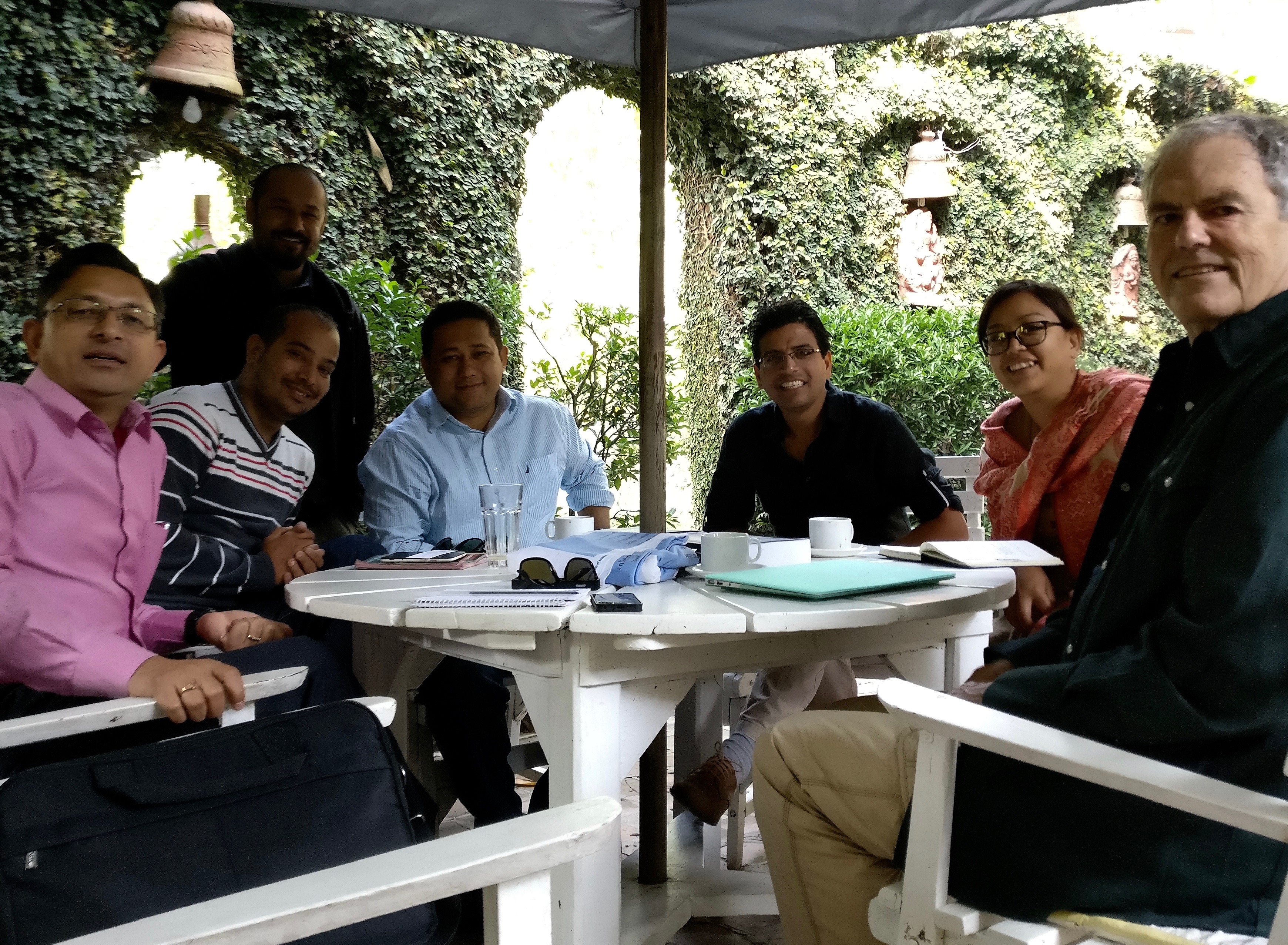The list of remarkable things about Nepal is remarkably long.
You could start with the physical: It has 8 of the 10 highest mountains in the world with elevations ranging from 66 meters to 8,848 meters above sea level. It is a biodiversity hotspot deriving from the multiple ecoregions–arctic to tropical, including mountains, hills, and savannas. There is a corresponding diversity of flora and fauna, with gorgeous butterflies and birds. There are many cultural groups and over 125 languages spoken. The architecture, the food, the music, the arts, the history, the religions, and more are fascinating. The traffic in Kathmandu is a story in itself.
However, I experienced something perhaps even more remarkable. I was fortunate to be included in a group of young Nepalis who hope to build a movement to make education in Nepal more progressive, specifically to make it more relevant to people’s lives, more connected to community, and more supportive of inquiry that leads to sustained learning and creativity.
The group has the tentative name of Progressive Educators of Nepal Network (PENN). We met last Tuesday for early morning breakfast at Hotel Vajra in Kathmandu.
Those present represented four organizations. Shisir Khanal and Swastika Shrestha came from Teach for Nepal. Like Teach for America and similar organizations, TFN engages university graduates and young professionals who are committed to reduce education inequality. They emphasize community-based education, teaching in rural, public schools. Fellows work for two years, typically living in a community and staying in a home there.
Umes Shrestha and Narottam Aryal came from King’s College, a new college whose objective is making world-class education available to Nepali youths at home at an affordable cost. King’s College seeks to make its teaching more relevant for students and more inquiry-based.
Karkhana, meaning “factory,” is a company emphasizing experimentation, collaboration, and play for both makers and teachers. It started as a Saturday morning hacker hang-out and evolved into an innovation focused company that combines education and design of new products. See for example, the recent Kathmandu Mini Maker Faire. Pauvita Gautram represented Karkhana and its inquiry-based learning approach.
Kathmandu Living Labs (KLL) is a not-for-profit civic technology company. It has been mapping all the educational institutions, health facilities, road networks, tangled mesh of gallies, religious sites and other geographic features of Kathmandu Valley using OpenStreetMap. Secondary and college-level students participate through mapping workshops. Nama Budhathoki represented KLL and its effort to extend youth mapping work to education for full civic engagement. See KLL goal statement.
In November, this network of people, organizations, and interests will host a month long project to foster the development of educators who can become leaders in community–based education. I’ll lead initial workshops on progressive education, inquiry-based learning, and community inquiry. We’ll also travel to village sites to explore community-based education, then bring those experiences back to Kathmandu for a national meeting.
The work of this group can be important for Nepal, while also serving as a model for others. More to come on this exciting project.






